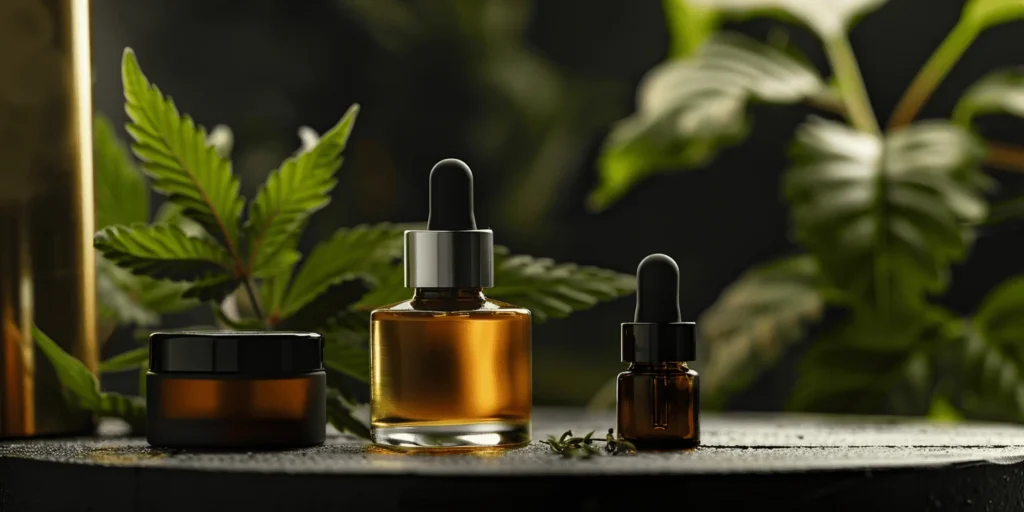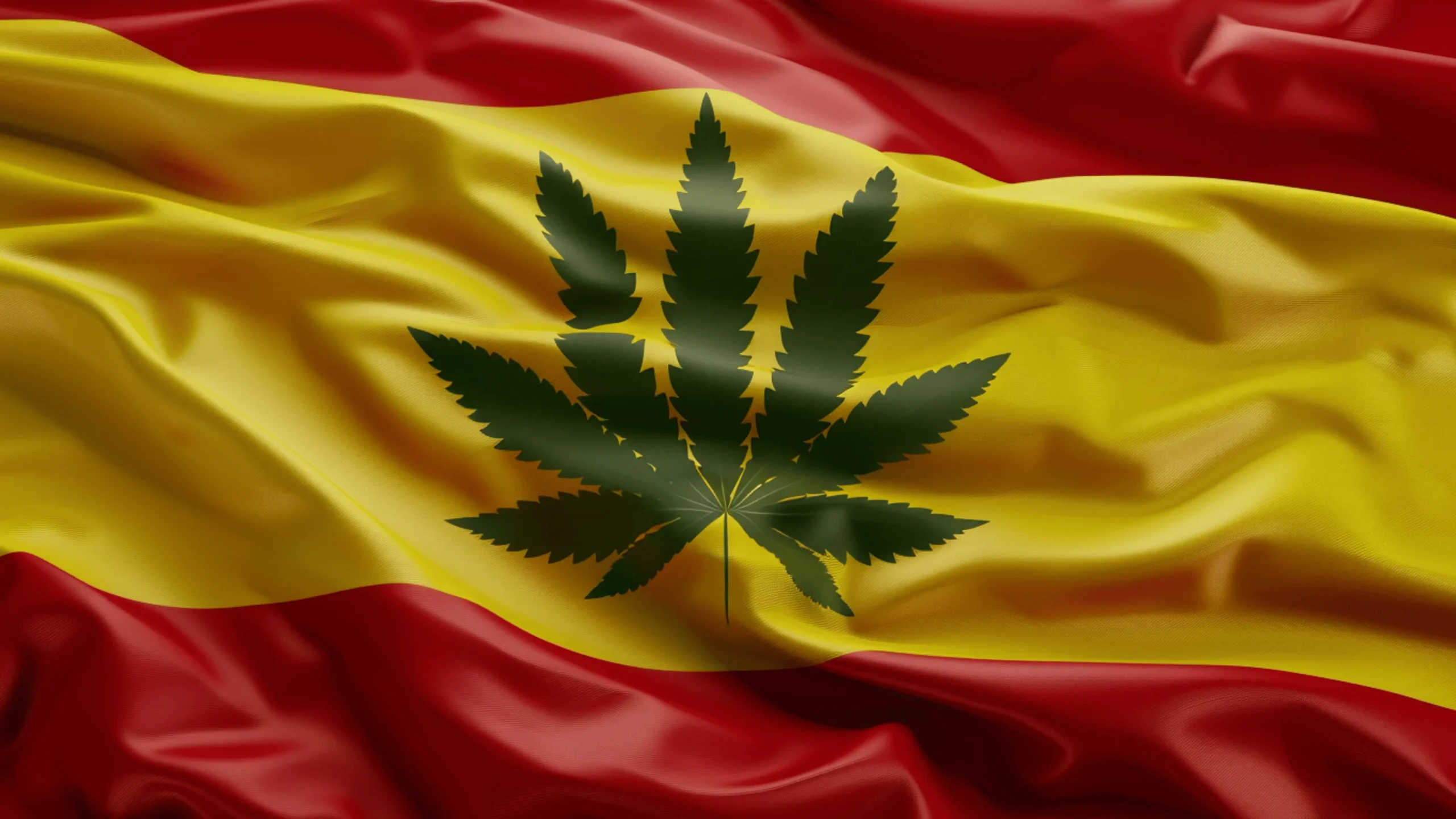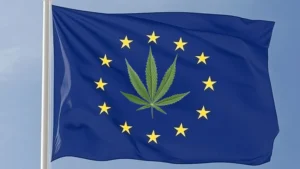If you wonder is CBD oil legal in Spain, you should know that the legal status of CBD oil in Spain and other CBD products is influenced by both national and EU regulations. Despite Spain’s progressive and historically innovative attitude on hemp, CBD oil is legal in Spain only for topical use, not for oral consumption. It must comply with EU laws, meaning the THC level must be under 0.2%.
This approach to the legal status of CBD oil in Spain reflects a cautious attitude towards CBD products that can be ingested. As a result, Spain’s CBD market is limited to external use of CBD products, aligning with broader EU regulations that control the CBD’s use across member states. CBD market entrants in Spain must ensure that all CBD products comply with the set THC threshold and are marketed for external use only to avoid legal complications.
Is it legal to sell CBD products in Spain?
By following the European Union regulations, Spanish laws support the production and sale of CBD oil and other CBD products derived from industrial hemp, as long as they contain less than 0.2% THC. This limitation reflects a broader EU command, ensuring that CBD products marketed in Spain are legally compliant. Despite these national regulations, some autonomous regions within Spain have explored more tolerant policies regarding products that contain higher levels of THC, although these are not allowed at the national level.
CBD oil and related CBD products are freely available across Spain, both through online platforms and in physical retail locations. This accessibility illustrates the growing acceptance and demand for CBD products within Spain.
Is it legal to grow hemp in Spain?
Spain is gaining traction as a significant player in the industrial hemp market. The cultivation and use of hemp for industrial purposes have expanded due to the legal framework allowing for CBD products containing low levels of THC. This ensures the production of various hemp-derived products such as fibers, other materials, seeds, and of course, CBD oil. Despite being a significant producer of hemp and related products, Spain primarily exports these goods to international markets.
The Spanish industrial hemp sector actively engages in growing hemp crops, supporting the creation of diverse, natural, and sustainable products. This engagement is part of a broader acknowledgment of hemp’s potential within Spain’s borders and beyond, as the country’s attitude on hemp aligns with global shifts in perception and legality.

Laws on growing and possessing marijuana in Spain
In Spain, the legality of marijuana involves a nuanced distinction between sale, possession, and consumption of cannabis. While the sale and possession of any amount of marijuana are criminal offenses, consumption in private spaces paints a different picture. Spain generally respects the privacy of its citizens, meaning that the consumption of marijuana for personal use in private settings is not punishable.
This respect for privacy extends to growing cannabis at home, provided it is not visible from public areas. In Spain, people are free to cultivate marijuana at home as long as it remains out of sight from the outside – placing plants on windowsills or visible balconies can lead to fines ranging from 601 to 30,000 euros.
Spain also faces a rise of numerous cannabis clubs and associations across the country. These entities operate on a non-profit basis, allowing them to cultivate and distribute cannabis to their members legally, provided it is not for sale or trade outside the club. This could symbolize the potential evolution of Spanish cannabis laws in 2025, as the government plans to approve the regulation of medical cannabis as well.
New update
Autonomous communities like Catalonia and Madrid often influence national policies through regional proposals and public sentiment. In 2025, these regions may advocate for new approaches that balance public health concerns with the economic and social benefits of regulated cannabis markets.
The legal status of CBD oil in Spain
Spain stands out as one of the most progressive countries in the European Union for hemp production, second only to the Netherlands. Spanish legislation supports the EU’s general attitude on industrial hemp, meaning that the production and sale of CBD oil that contains less than 0.2% THC is legal. Despite these liberal policies, the EU introduced a ban in 2018 on the use of CBD oil as a food additive for human consumption, although hemp seeds and skincare products continue to be permissible under existing legislation. CBD oil in Spain can only be used externally.
Moreover, Spain is renowned for hosting Spannabis, the largest cannabis event in Europe, held annually in Barcelona since 2002. This event showcases a wide bunch of hemp-related products, from cosmetics and footwear to textiles and building materials, highlighting the versatile industrial uses of the hemp plant. For those considering entering the CBD market in Spain, attending this event might be beneficial for not only getting acquainted with CBD innovations, but also for building new relationships with potential partners and distributors.
How much THC can CBD oil contain?
As it was mentioned before, the production of CBD oil in Spain is governed by EU laws, which mandate that the THC content in CBD products must not exceed 0.2%.
Although in most EU member states, the legal THC limit for any hemp derivative is 0.2%, some countries may apply different requirements. For more information you can read our article “Is CBD oil legal in Europe?”.
CBD laws in Spain | Regulating organizations
In Spain, the regulation of CBD oil and other CBD products involves several key organizations that influence the legal landscape. The World Health Organization (WHO) has affirmed that CBD is safe, highlighting its benefits. The European Food Safety Authority (EFSA) plays a crucial role, having designated CBD added to food as a ‘novel food’, requiring pre-market evaluation. Additionally, Spain’s own Agencia Española de Medicamentos y Productos Sanitarios (AEMPS) oversees the regulation of products that could be commercialized as food or dietary supplements, thus far not approving CBD for consumption. These bodies collectively shape the regulatory environment for CBD in Spain, ensuring compliance with both national and EU laws.
WHO
The World Health Organization (WHO), a specialized agency of the United Nations, plays an important role in setting global health standards and coordinating health-related matters across its six regional offices, including the Europe Regional Office (EURO). Their mandate encompasses health coordination, promotion, prevention, and intervention worldwide. Regarding CBD oil, the WHO has issued significant statements that greatly impact its perception and legal status, particularly in regions like Spain.
The WHO’s position on CBD oil underscores its non-addictive nature and minimal side effects, highlighting the CBD’s numerous health benefits. This approval by such a respected authority influences the regulatory frameworks in Spain, where the legal landscape for CBD oil also closely aligns with broader EU directives.
EFSA
The European Food Safety Authority (EFSA), overseeing food safety risks within the European Union, plays an important role in determining the fate of CBD oil across Europe, including Spain. Their accurate investigations and analyses are critical in assessing the potential risks associated with food products. This agency’s influence was particularly apparent when it led to the removal of food products enriched with CBD oil from the market, affecting availability in Spain among other EU nations.
In Spain, the implementation of EFSA’s directives falls under the jurisdiction of the Agencia Española de Consumo, Seguridad Alimentaria y Nutrición (AECOSAN). This organization is tasked with ensuring that EFSA’s regulations are adhered to, particularly in relation to the legality and safety of CBD oil and related products.
AEMPS
The regulatory landscape for CBD in Spain is also significantly influenced by the Agencia Española de Medicamentos y Productos Sanitarios (AEMPS), which governs the approval of products potentially commercialized as food items or dietary supplements. Currently, the AEMPS has not approved CBD, meaning CBD oil and other CBD products cannot be legally sold as a food product or for ingestion in Spain. This attitude aligns with the European Food Safety Authority’s (EFSA) decision to de-authorize the sale of CBD as a food product, reflecting a unified regulatory approach within Spain and across Europe.
Before the EFSA’s directive, CBD products designed for ingestion were available on the market in Spain. However, this enforcement has led to confusion and concern among stakeholders about the future legality and viability of their products. This situation underscores the importance for businesses to stay informed and adapt to the evolving legal standards concerning CBD oil in Spain.
Can CBD be sold as a food supplement in Spain?
CBD oil and other CBD products are legal in Spain but some restrictions on use and marketing exist. According to the Spanish Agency for Medicines and Health Products (AEMPS), CBD has not been approved as a food supplement, restricting its application strictly to cosmetic products. Consequently, the marketing of any CBD products intended for ingestion is explicitly prohibited within Spain. This limitation is clearly reflected in the legal requirement that CBD oil must be distinctly labeled for external use only, ensuring it is not mistakenly sold or used as a food supplement.
Despite these limitations, market predictions indicate a booming growth trajectory for the European CBD oil market in the 2025. If you consider operating in Spain’s CBD market, we advise you to navigate legal restrictions carefully, ensuring compliance.
Sourcing CBD products in Spain
Since January 2019, the European Union has classified CBD added to food supplements as ‘novel food’. This designation requires that CBD products undergo evaluation and authorization before being marketed. In Spain, while the consumption and sale of CBD for ingestion face strict legal regulations, a variety of legal CBD products, particularly for skincare and the treatment of skin conditions, are widely available. These legal products are typically found in alternative medicine shops or pharmacies.
For businesses interested in entering the Spanish market, it’s crucial to source CBD from reputable and accredited suppliers. Hempo Solutions offers wholesale quantities of various CBD products, ensuring businesses can access high-quality supplies. Entrepreneurs should consider not limiting their search to Spain alone – expanding their search to include suppliers across Europe can not only enhance product quality but also provide a broader range of CBD products. This approach is essential while capitalizing on the growing market for CBD products in Spain.

Regulations on importing and exporting CBD in Spain
The movement of hemp products across international borders within the European Union is governed by the Common Agricultural Policy (CAP) framework, which establishes specific regulations for the import and export of hemp. European CBD companies generally find it simple to ship CBD to Spain or export it, provided that:
- CBD products were legally produced within other EU member states;
- CBD products hold the necessary novel food authorization.
Additionally, having a certificate of analysis can further simplify the process. It is crucial for businesses involved in the import or export of CBD oil to stay updated with Spain’s latest legal developments. This caution ensures compliance and reduces the risk of legal complications. Understanding and adhering to these regulations is essential for any company looking to navigate the landscape of CBD legality in Spain effectively.
Key aspects on CBD legality in Spain
Spain’s current regulations surrounding CBD oil states that it is legal only for topical use, provided the THC content is below 0.2%. This allows CBD oil and other CBD products to be widely available online and in health shops, although it remains illegal for oral consumption. This creates a somewhat complex legal landscape for products like CBD gummies, where no clear local legal framework exists.
Featured Articles

Blog Home
No Content



